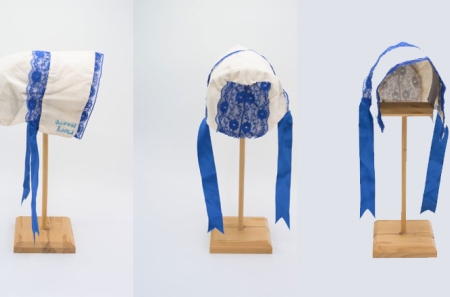
Recording available for Publishing GLAM Data as FAIR Data
05 November 2020Webinar exploring the benefits of publishing Galleries, Libraries, Archives, and Museums (GLAM) data as Findable, Accessible, Interoperable and Reusable (FAIR) data.
On 29 October 2020, the DRI in collaboration with RDA Ireland, and with the support of Europeana Research, hosted a webinar exploring the benefits of publishing Galleries, Libraries, Archives, and Museums (GLAM) data as Findable, Accessible, Interoperable and Reusable (FAIR) data. This webinar was the second in our online series dedicated to FAIR and open data for the GLAMs. If you missed the first event in the series, we invite you to watch the recording here
The webinar aimed to address the following questions:
- What is FAIR and Open data?
- Why publish FAIR GLAM data?
- What does FAIR GLAM data look like?
- Where to publish FAIR GLAM data?
- How to clear copyright issues?
Introductory remarks were provided by DRI Director, Dr Natalie Harrower, who reflected on the importance of digital collections as a means of disseminating data, especially when cultural institutions are closed due to COVID-19 restrictions. Dr Harrower remarked that there are many good reasons for publishing GLAM data as FAIR data: FAIR publishing enables more people to access and engage with your collections; it encourages researchers to use your collections in their work, which provides additional avenues for outreach, dissemination, and digital alternatives to ‘footfall’; and it also opens avenues for direct collaboration on projects that are funded through research funding sources.
Dr Harrower introduced our first speaker, Roy Stanley, music librarian at the Library of Trinity College Dublin (TCD). Roy curated the exhibition ‘In Tune: a millennium of music in Trinity College Library in the Long Room in 2013-14. Roy shared important insights about how complicated copyright issues were resolved to facilitate open access to Irish composer Ina Boyle’s manuscripts through TCD’s Digital Collection
Our second speaker, Saskia Scheltjens, head of research services at the Rijksmuseum in the Netherlands, described the fascinating open data journey of the museum, starting with the decision to open its collection data to coincide with the museum's reopening in 2013.
Our closing speaker was Dr Kathryn Cassidy, software engineer at the DRI, who illustrated what FAIR GLAM data looks like using examples from platforms like Europeana and the DRI repository.
We are grateful to our speakers for sharing their knowledge and experience of publishing GLAM data as FAIR data for the benefit of the wider cultural heritage and research sectors. We were delighted to attract a large international audience for the event. Our speakers address questions from the audience at the end of the webinar session. We hope that this webinar recording proves to be a useful resource for all those interested in learning more about the opportunities provided by publishing GLAM data as FAIR data.



